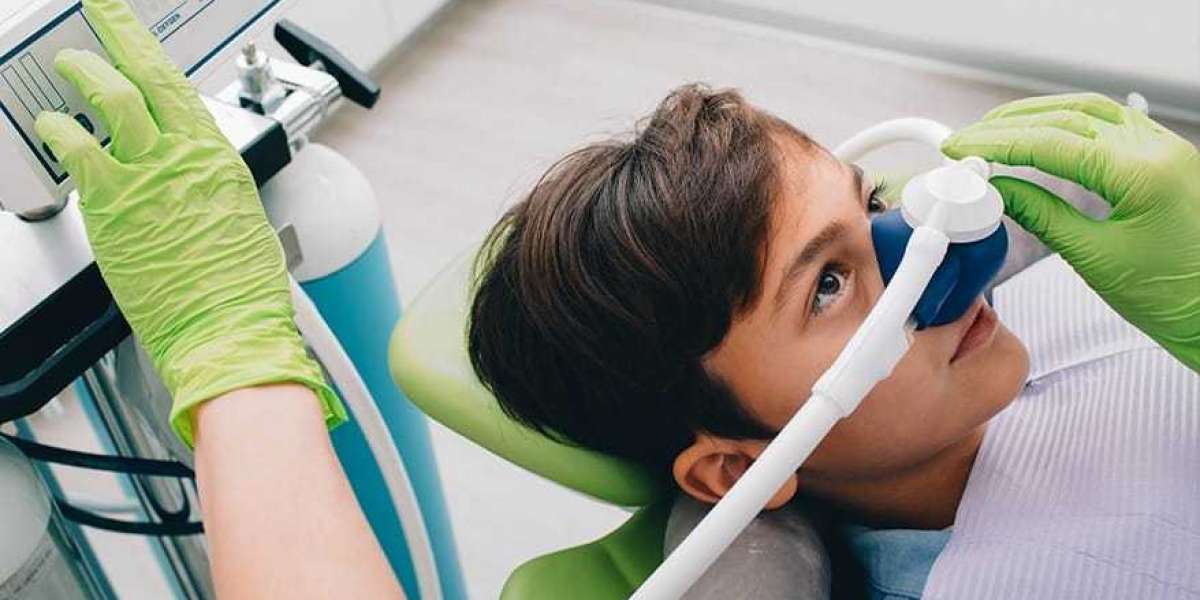Are you feeling anxious about your upcoming dental appointment? Sedation dentistry might just be the solution you've been looking for! Imagine a stress-free visit to the dentist, where you can relax and receive treatment without fear or discomfort. In this blog post, we will dive into the world of sedation dentistry, explore its benefits, provide tips on how to prepare for your appointment, offer advice on managing anxiety and fear, discuss post-appointment care, and even touch on alternatives to sedation. Get ready to conquer your dental fears and embrace a more comfortable experience at the dentist's office!
Understanding Sedation Dentistry
Sedation dentistry involves the use of medication to help patients relax during dental procedures. There are different levels of sedation, ranging from minimal sedation (awake but relaxed) to deep sedation (almost unconscious) and general anesthesia (unconscious).
The type of sedation used will depend on the patient's anxiety level and the complexity of the procedure. Sedatives can be administered orally, through inhalation, intravenously, or even via injection.
Sedation is safe when administered by trained professionals in a controlled environment. It allows patients with dental phobias or anxiety to receive necessary treatment without experiencing overwhelming fear or discomfort.
By understanding the various options available for sedation dentistry and discussing them with your dentist beforehand, you can choose the best approach that suits your needs and ensures a more comfortable experience at the dental office.
Benefits of Choosing Sedation Dentistry
Sedation dentistry offers a range of benefits for patients who may feel anxious or fearful about dental procedures. One significant advantage is that it helps individuals relax and feel more comfortable during their appointment. By using sedatives, patients can undergo treatments without experiencing stress or discomfort.
Another benefit of choosing sedation dentistry is improved time management. With the help of sedatives, dental procedures that may typically take multiple visits can often be completed in one session. This not only saves time but also reduces the overall number of appointments needed, making it convenient for busy individuals.
Moreover, sedation dentistry can be beneficial for patients with sensitive gag reflexes or difficulty sitting still for extended periods. The relaxed state induced by sedatives allows both the patient and dentist to work more efficiently, leading to better treatment outcomes.
Opting for sedation dentistry can enhance the overall experience of visiting the dentist and make dental care more accessible and comfortable for those who struggle with anxiety or other issues related to receiving dental treatment.
How to Prepare for Your Appointment
Preparing for your sedation dentistry appointment is crucial to ensure a smooth and comfortable experience. Start by following any specific pre-operative instructions provided by your dentist, such as fasting before the procedure if necessary. Make sure to arrange for someone to drive you home afterward since the effects of sedation can linger.
Prepare a list of questions or concerns you may have and discuss them with your dentist during a pre-appointment consultation. This will help alleviate any anxiety or uncertainties you might be feeling leading up to the procedure. On the day of your appointment, wear loose, comfortable clothing and avoid wearing jewelry or accessories that could interfere with treatment.
Remember to disclose any medications you are taking, including over-the-counter drugs and supplements, as they may interact with sedatives used during the procedure. Try to get a good night's sleep before your appointment and plan ahead for relaxation techniques that can help ease nerves on the day of your visit.
Tips for Managing Anxiety and Fear
Dealing with anxiety and fear before a sedation dentistry appointment is common. Here are some tips to help you manage these emotions:
Communicate openly with your dentist about your fears and concerns. They can provide reassurance and explain the sedation process in detail.
Practice relaxation techniques such as deep breathing or visualization to calm your nerves before the appointment. This can help reduce anxiety levels significantly.
Consider listening to calming music or podcasts during the procedure to distract yourself from any anxious thoughts. Many dental offices even offer headphones for this purpose.
If needed, inquire about additional forms of sedation that may better suit your level of anxiety. Your dentist can recommend options like nitrous oxide or oral sedatives for added comfort.
Remember that you are not alone in feeling apprehensive about dental visits. Dentists are trained to handle patients with dental anxiety and will work with you to ensure a comfortable experience throughout the procedure.
Post-Appointment Care and Recovery
After your sedation dentistry appointment, it's essential to follow the post-care instructions provided by your dentist. This may include avoiding eating or drinking for a certain period after the procedure to allow time for the sedation to wear off safely. Your dentist may also recommend taking pain medication if needed and applying ice packs to reduce any swelling or discomfort.
It's crucial to rest and avoid strenuous activities following your appointment. Give yourself time to recover fully before jumping back into your daily routine. Make sure to attend any follow-up appointments scheduled by your dentist for proper monitoring of your oral health post-treatment.
If you experience any unusual symptoms such as excessive bleeding, severe pain, or signs of infection, contact your dentist immediately for further guidance. By following these post-appointment care tips diligently, you can ensure a smooth recovery process and optimal results from your sedation dentistry treatment.
Alternatives to Sedation Dentistry
For those who prefer alternatives to sedation dentistry, there are options available that can help ease anxiety and discomfort during dental procedures. One such alternative is acupuncture, a traditional Chinese medicine practice that involves the insertion of thin needles into specific points on the body to promote relaxation and pain relief.
Another alternative is hypnotherapy, where a trained therapist guides you into a state of deep relaxation and uses suggestion techniques to help you manage fear and anxiety. Some patients also find comfort in using essential oils or listening to calming music during their appointments to create a more soothing environment.
Cognitive-behavioral therapy (CBT) is another option that focuses on changing negative thought patterns and behaviors related to dental phobias. Additionally, some dentists offer distraction techniques such as virtual reality headsets or ceiling-mounted TVs to divert your attention away from the procedure.
It's important to discuss these alternatives with your dentist to determine what may work best for your individual needs and preferences.
Conclusion
Preparing for your sedation dentistry appointment is crucial for a smooth and comfortable experience. By understanding the process, following pre-appointment guidelines, managing anxiety effectively, and adhering to post-care instructions, you can ensure a successful outcome. Remember that sedation dentistry offers a safe and effective way to address dental anxiety and discomfort during procedures. Discuss your options with your dentist to determine if sedation dentistry is right for you. Take charge of your oral health today by being informed and prepared for your next dental visit!








